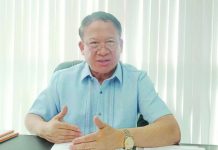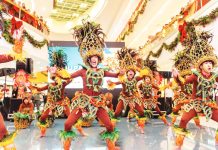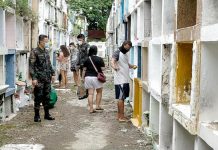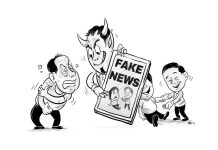
THERE ARE moments in history when a person shows up not as the perfect hero, but simply as the right person in the right place at the right time.
On August 21, 1983, Benigno “Ninoy” Aquino Jr. stepped off a plane knowing the risks, armed with nothing but conviction and a bulletproof vest that would prove useless against a bullet to the back of his head. It was not martyrdom for show. It was a calculated gamble, born of love for a country shackled by dictatorship. Like most heroes in our history books, Ninoy was not faultless. But when it mattered most, he showed up — and that, in itself, is heroism.
Our history is filled with men who were complicated, driven, and far from saintly. Rizal was brilliant, but he often hesitated. Bonifacio was brave, but divisive. General Luna was strategic and unrelenting, yet volatile and tragically misunderstood. They were not perfect, but their impact is undeniable. Ninoy belongs in that lineage — of individuals who, despite their flaws, carried the burden of leadership when others backed down. The notion that heroes must be spotless is a myth peddled by those who forget that the call of history rarely waits for flawless men.
Ninoy had his share of criticisms. Some labeled him an ambitious politician hungry for power, while others questioned his ties with the left during the volatile years before martial law. He was also a part of the elite, a product of privilege, fluent in both politics and maneuvering. But these complexities should not erase the clarity of his ultimate act: choosing to return to a country where death awaited. In 1983, amid a nation drained by fear and silence, that kind of moral clarity was enough to spark fire.
I remember Typhoon Frank in 2008, back when I found myself waist-deep in floodwater in Brgy. Quartero, Jaro. Our school principal was stranded. My colleagues later said I risked my life to save her. But truth be told, I did not feel like a hero. I was just the only person near enough, alert enough, and foolish enough not to hesitate. Maybe that is how it works. Sometimes, the ones we call heroes simply move forward when others freeze. Ninoy, for all his human faults, moved forward.
Courage is rarely romantic. Often, it is tired, bruised, and unsure. Jose Rizal wavered before accepting martyrdom. Bonifacio was betrayed by fellow revolutionaries. Luna was shot by his own countrymen. And Ninoy? He was alone, betrayed, and gunned down by men in uniform. These deaths were not neat, not noble in their endings. Yet they continue to echo because they touched something deep and desperate in our national soul — a desire to be free, heard, and led by people who care more about country than self.
A curious thing about remembering Ninoy every August 21, holiday or otherwise, is how polarizing his memory has become. In recent years, historical distortion and political loyalties have turned his legacy into a battlefield. His statues have been vandalized. His face was quietly removed from banknotes. Malicious quip to change the name of his assassination’s ground zero, Ninoy Aquino International Airport (NAIA), back to Manila International Airport (MIA) continue to linger. And the day meant to honor his death was casually moved year to year either to create a long weekend or just out of trump-up justification. We are told this is harmless holiday economics or apolitical initiatives. (To be continued)/PN







